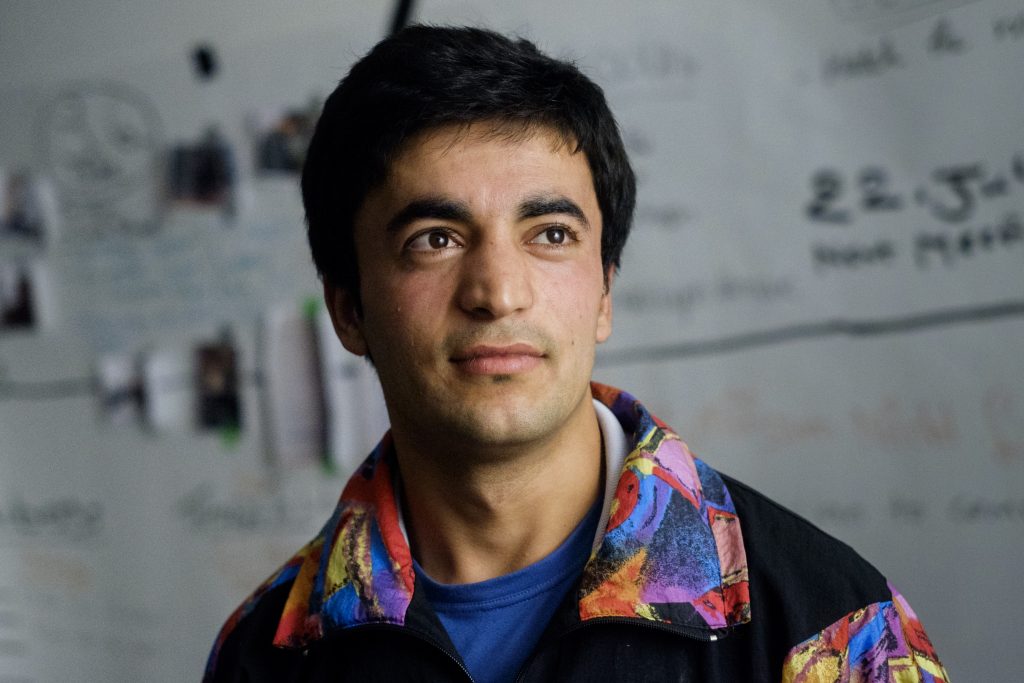Sonita is 18 years old, from Afghanistan, and lives as an undocumented migrant in Iran. Her dream is to have a career as a rapper. She hopes to escape her family’s plan to sell her to an unknown husband. The Iranian director Rokhsareh Ghaem Maghami followed Sonita Alizadeh for three years and documented her story.

Kurator:in
Afghanistan has many traditions, some of which are completely wrong. These traditions give families the opportunity to marry off their young daughters without their acceptance or consent. Because this affects me personally, I want to express my feelings by presenting the film Sonita at KINO ASYL. In some provinces, for example, there is a tradition that allows families to arrange the engagement of their children even before they are born. This tradition is called Naami Kardan in Dari, which means to promise one’s daughter to someone else. In some areas, it is also common for families to sell their daughters for bride prices. These can range from one million to two or three million Afghani. There are also cases where daughters are exchanged for sons. All of this makes child marriage a highly illegal business. In this country, a girl who is raised to do housework, to be obedient, and to remain a virgin can be sold or traded without consequence. These young brides miss out on education: once Afghan girls are married, they are no longer allowed to continue school. The law forbids married girls from attending school alongside unmarried girls. I believe girls should only be allowed to marry after completing their higher education. Then they can raise their own children to become privileged members of society while living their lives on their own terms. According to the United Nations and UNICEF statistics, more than 57 percent of Afghan brides are under sixteen, and the maternal mortality rate during childbirth is 18 percent.

Kurator:in
Afghanistan has many traditions, some of which are completely wrong. These traditions give families the opportunity to marry off their young daughters without their acceptance or consent. Because this affects me personally, I want to express my feelings by presenting the film Sonita at KINO ASYL. In some provinces, for example, there is a tradition that allows families to arrange the engagement of their children even before they are born. This tradition is called Naami Kardan in Dari, which means to promise one’s daughter to someone else. In some areas, it is also common for families to sell their daughters for bride prices. These can range from one million to two or three million Afghani. There are also cases where daughters are exchanged for sons. All of this makes child marriage a highly illegal business. In this country, a girl who is raised to do housework, to be obedient, and to remain a virgin can be sold or traded without consequence. These young brides miss out on education: once Afghan girls are married, they are no longer allowed to continue school. The law forbids married girls from attending school alongside unmarried girls. I believe girls should only be allowed to marry after completing their higher education. Then they can raise their own children to become privileged members of society while living their lives on their own terms. According to the United Nations and UNICEF statistics, more than 57 percent of Afghan brides are under sixteen, and the maternal mortality rate during childbirth is 18 percent.